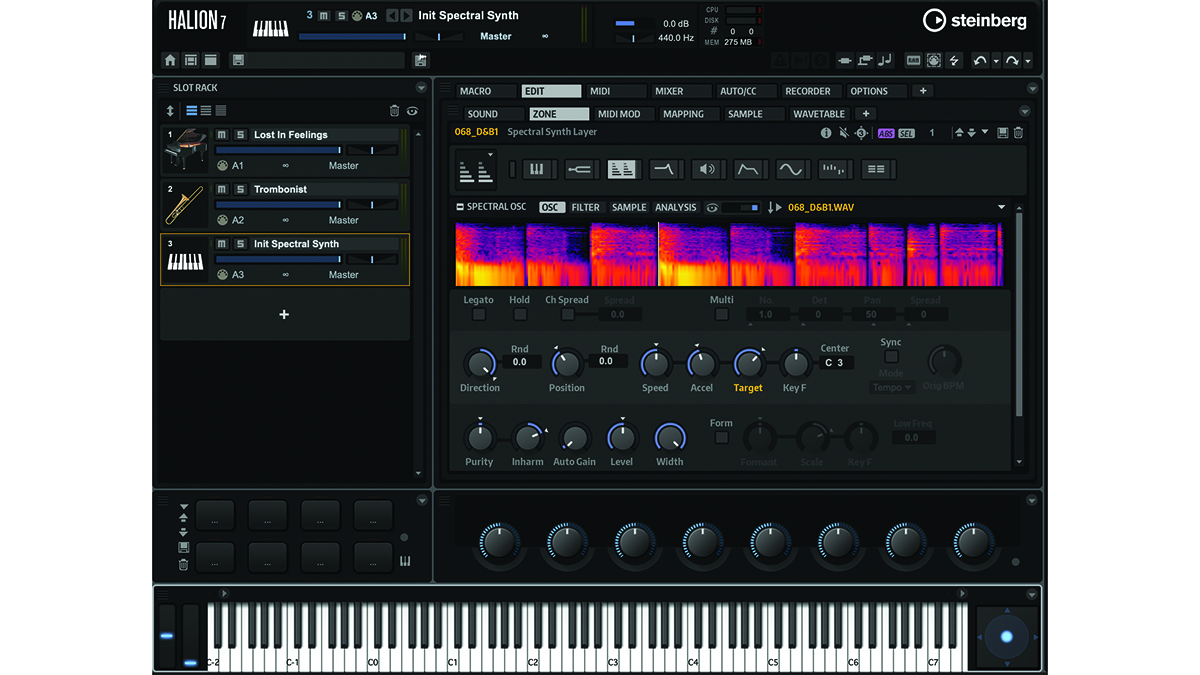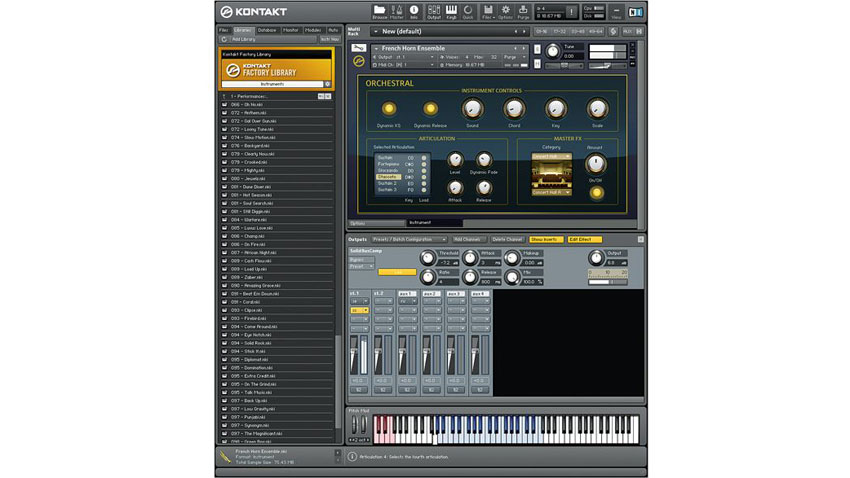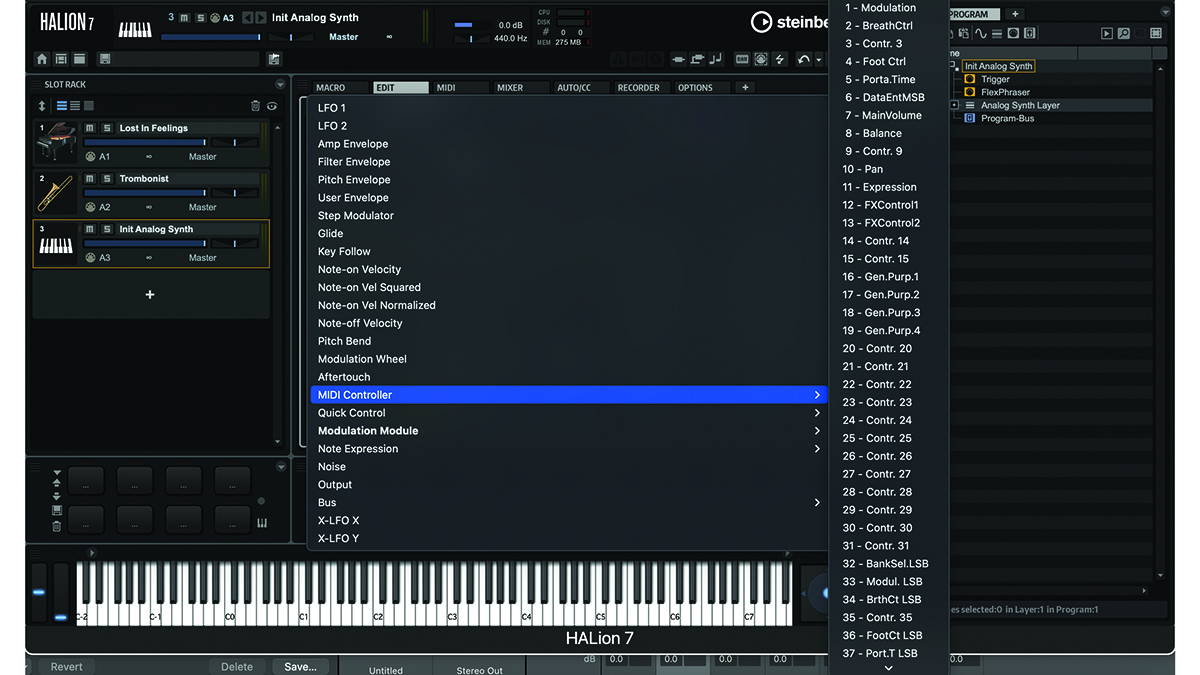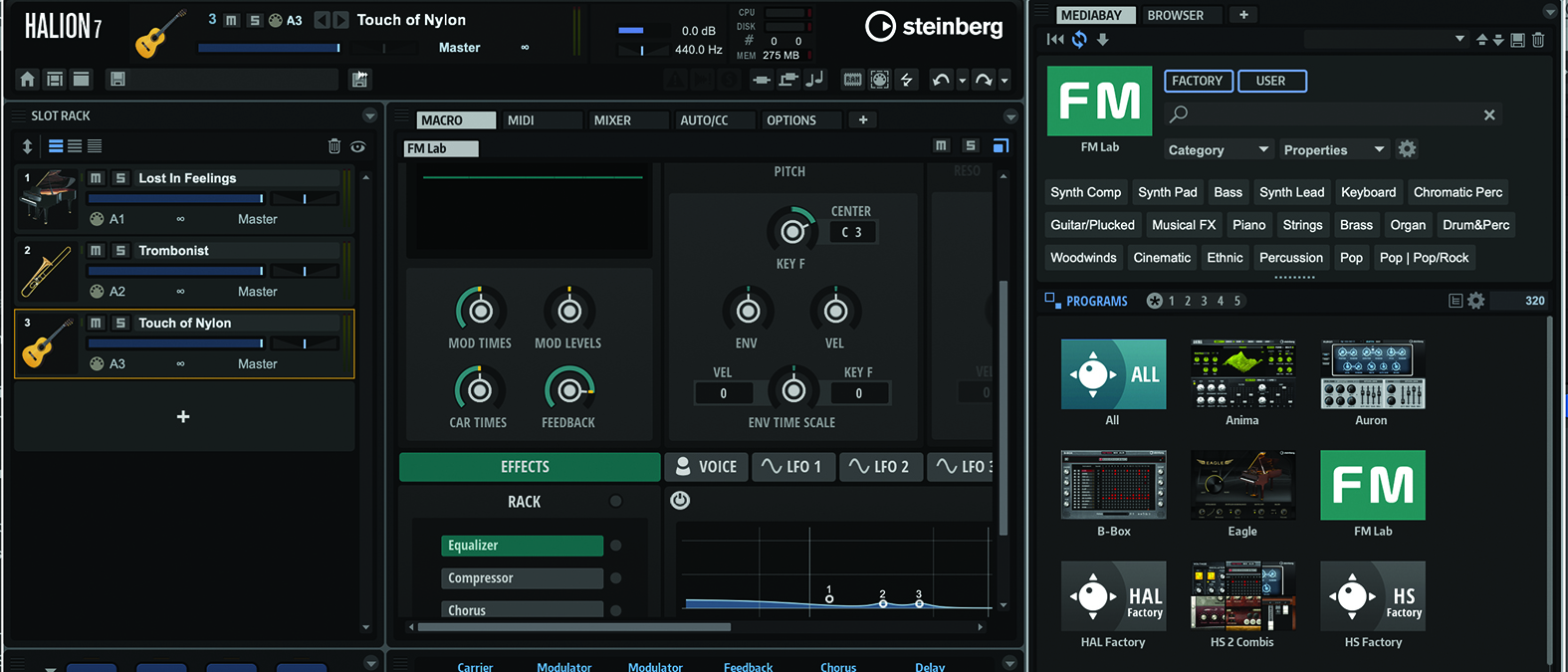MusicRadar Verdict
HALion 7 could well be the only instrument you ever need. The depth and design potential really are extraordinary if you are prepared to explore and work with it.
Pros
- +
Easy and powerful modulation.
- +
FM Zone makes FM easy!
- +
Spectral Zone allows you to twist audio like never before.
- +
Far simpler installation and workflow.
Cons
- -
You’ll have a lot of what’s here with other instruments and plugins.
MusicRadar's got your back
Steinberg HALion 7: What is it?
Steinberg’s HALion (standalone, VST, AU, and AAX) is a do-everything plugin and features sampling, virtual instruments, a wealth of sound design and synthesis options and over 37GB of content.
Version 6 was a big chapter in its story, a life which began as a humble virtual sampler way back in 2001.
The Wavetable Zone was added to VA, granular and organ engines, the sampling options were increased and piano, brass and string instruments were included.
Version 6 was designed to improve on HALion in some key ways. It had very much become a fabulous sound design tool, with plenty of elements to twist and turn the ingredients into something new, or create entirely fresh instruments.
It did feel a little cumbersome, though – almost too powerful – and six years on, while HALion 7 adds extras, (it has 15 instruments in total and over 3700 presets), it thankfully, loses some deadwood along the way.

Steinberg HALion 7: Performance and verdict
The first cut here is the lengthy installation process that v6 put you through. We had v7 up and running from scratch in less than 20 minutes, including the 37GB download. Using Steinberg’s Download Manager, no dongle is required, and it couldn’t have been easier.

• Native Instruments Kontakt
Almost industry standard sampling instrument with huge flexibility and option to add new collections
• UVI Falcon
Similar engines, price, effects and modulation, Falcon is a powerhouse of an instrument
Version 7 includes some all-new goodies – of course, it does – the main one being FM Zone, to add to those synthesis options. It’s an obvious addition really, what with parent company Yamaha’s FM heritage via synths like the DX7.
Want all the hottest music and gear news, reviews, deals, features and more, direct to your inbox? Sign up here.
That hardware instrument was, frankly, a pain to use; FM Zone isn’t. You get the operator guts of FM synthesis as drop-down menus or displayed graphically as an algorithm. These can easily be changed (with classic DX7 options if you wish), and five main tabs take you into all other main sound tweaking areas so you’ll quickly be experimenting and creating.
Spectral Zone is another new addition, and we suspect this might take some elements from SpectraLayers, another title that has come into the Steinberg/Yamaha stable.
Either way, it lets you see and manipulate your audio in highly flexible ways. There’s time-stretching and pitch shifting, both of which are among the most natural we have heard – but it goes deeper, with resynthesis options like Purity and Formant. These both twist in filter-style editing and a separate Filter tab lets you get even further into the frequency tweaking.
Other controls include Accelerate and Target which lets you speed up, freeze or slow down the sample as it plays back. Spectral Zone is certainly a HALion highlight and there’s enough in this section alone to change a single sound beyond all recognition.

More modulation and creation
The level of modulation in HALion 7 has always been high but Steinberg has given it an overhaul with v7. Changing how sounds dynamically morph is easier than ever. The controls display their modulator sources once you click them, and a drop-down menu allows you to add new ones.
HALion also lets you go in and edit Sources to quite a degree and again, it’s super simple to do this. The Modulation system works particularly well in areas of HALion like the all-new Spectral Zone where you can apply velocity, for example, to the Purity or Accelerate parameters for some great real-time changes as you play. Create more lively filtered action in a bass sound, for example, or jittery speed effects depending on LFOs or other sources.
Modulation often takes second place in instruments like this, with added synths and instruments stealing any version upgrade headlines, but this system is very much an equal to them and it’s one that you will use to great effect.
And there’s more
As well as a modulation overhaul there’s a lot more in terms of out-and-out sonic additions. There’s a new Tales instrument, an open-tuned guitar which is natural and wonderful (fun to push to extremes too), and now you also get some 70 effects to play with.
Steinberg says that HALion has also had a refresh with its UI, but really this is more about the workflow and the home page allowing more instant access to the instruments and multi setups.
Overall, it’s a pleasure to use and easy to investigate the vast sonic options on offer. Really, what you’re getting for the price is pretty extraordinary. It’s like an entire Kontakt library under one roof with exceptional sound design features. And all that for €350 seems like a bargain.
HALion seems to have been around forever, which could also mean you overlook it as a relevant sound design tool in 2023. The truth is, it’s still one of the most feature-packed ecospheres out there. Ignore it at your peril.
MusicRadar verdict: HALion 7 could well be the only instrument you ever need. The depth and design potential really are extraordinary if you are prepared to explore and work with it.
Steinberg HALion 7: Hands-on demos
VST Instruments & Plug-Ins
Jef Gibbons
One Man And His Songs
Steinberg HALion 7: Specifications
- macOS Big Sur, macOS Monterey, macOS Ventura. Rosetta 2 App, Native App. VST 3, AAX, AU.
- Windows 10 (64-bit), Windows 11 (64-bit). VST 3, AAX.
- CONTACT: Steinberg
Andy has been writing about music production and technology for 30 years having started out on Music Technology magazine back in 1992. He has edited the magazines Future Music, Keyboard Review, MusicTech and Computer Music, which he helped launch back in 1998. He owns way too many synthesizers.

